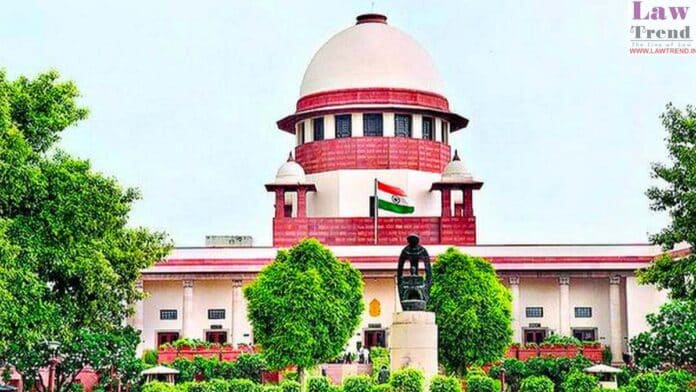The Supreme Court on Tuesday took note of the “urgent need” to ensure filling up of 275 vacancies for the post of junior civil judge in Haryana and directed the state to take necessary steps within two weeks to ensure that the recruitment is conducted.
A bench headed by Chief Justice D Y Chandrachud said the recruitment be conducted by a committee consisting of three judges of the Punjab and Haryana High Court nominated by the chief justice there, the state’s chief secretary, the Advocate General of Haryana and the chairperson of the Haryana Public Service Commission.
“There is an urgent need to ensure that the existing 275 vacancies in the post of junior civil judges are filled up at the earliest,” said the bench, also comprising justices J B Pardiwala and Manoj Misra.
The apex court passed the order while dealing with an application filed by state of Haryana seeking directions, including that recruitment of judicial officers in the cadre of civil judge junior division may be conducted as per the provisions laid down in Part C of the Punjab Civil Service (Judicial Branch) Rules 1951 (as applicable to the state of Haryana) by the Haryana Public Service Commission.
Senior advocate Vijay Hansaria, who is assisting the apex court as an amicus curiae in the matter along with advocate Sneha Kalita, told the bench that there are vacancies and the posts have not been advertised due to the “differences between the state government and high court about the manner of holding examinations”.
The top court is hearing a matter relating to the improvement of judicial infrastructure across the country including filling up of vacancies.
The bench noted that in the application filed before it, the state has sought a direction to the effect that it should be permitted to conduct the entire selection process through the public service commission for recruitment to the judicial branch.
It said the state has urged that the rules contemplate that selection process to the judicial service has to be carried out by the public service commission.
Also Read
The bench observed that counsel representing the high court has submitted that from 2005, a consistent pattern has been followed by which recruitment has been made under a selection committee consisting of both representatives of the high court and three other members, including the advocate general, the chief secretary and the chairperson of public service commission.
“In the present case, a consistent pattern was followed by the state government by which the recruitment to the judicial service was entrusted to a selection committee as noted above,” the bench said.
It said if the state wished to bring about any change in that position, it was incumbent upon it to consult the high court.
“Judges of the high court who participate in the selection process have domain knowledge both of the subject and the nature of the service,” the top court said.
While refusing to accede to the request made by the state in the application, the bench said the state has not placed sufficient material before it to warrant a deviation from the course of action which was being followed in the past.




